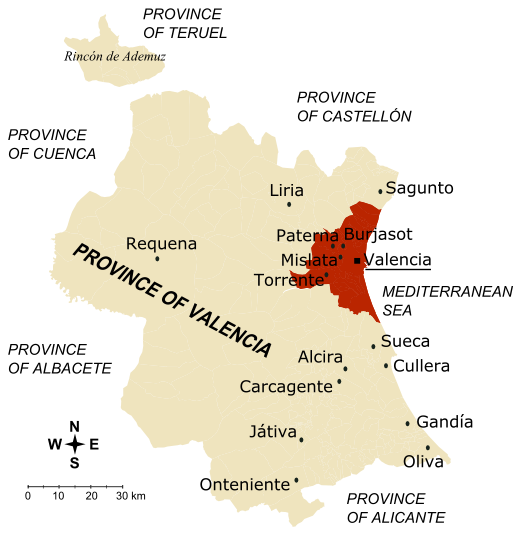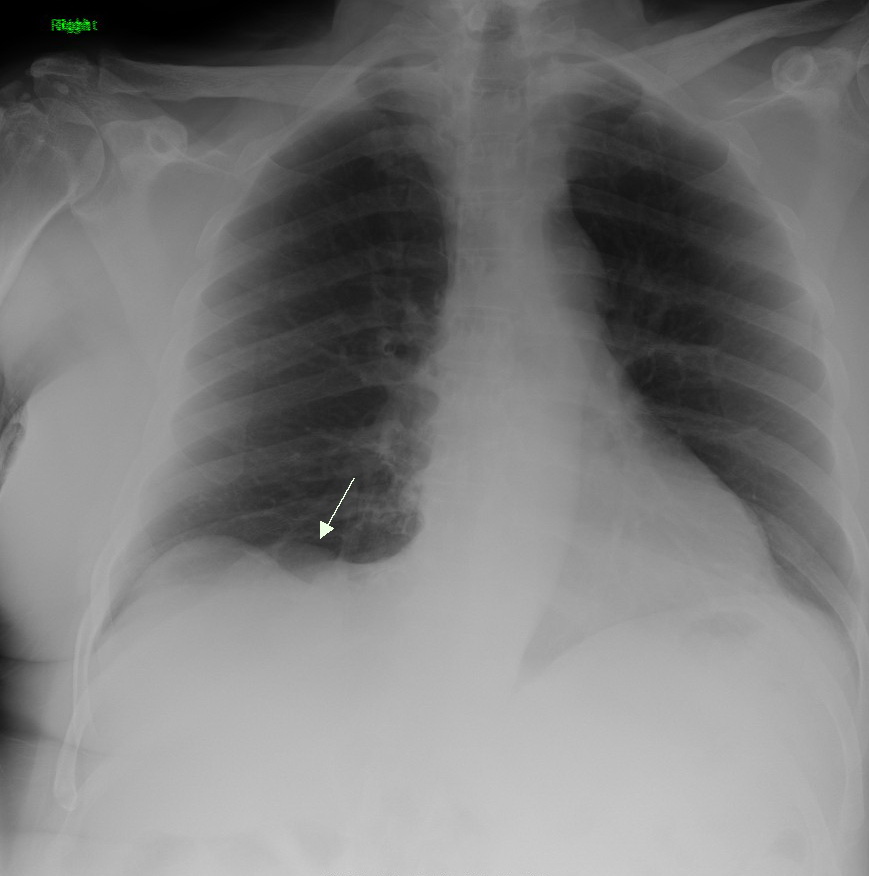|
Fernando Abril Martorell
Fernando Abril Martorell (31 August 1936 – 16 February 1998) was a Spanish politician and agricultural engineer. Biography Born in Valencia, Spain, in 1936, he studied Agricultural Engineering and Political Sciences in Madrid, later obtaining a doctorate in both. In 1969 he was named a president of the Diputación Provincial de Segovia (Provincial Delegation of Segovia) and was appointed a civil governor by Adolfo Suárez. After this, he was a technical director of the FORPPA (1971-1972) and a director of general Agrarian Production (1972-1974). He was appointed a Minister of Agriculture in Spain from (1976-1977), a member of the Senate (1977-1979), and he was one of the founders of Unión de Centro Democrático (Union Democratic Center) (UCD). He was elected regional president of it in Valencia Province. He was the third Vice-president of the government for Political Subjects (1977-1978) and the second vice president Minister of Economy (1978-1980). He was one of the write ... [...More Info...] [...Related Items...] OR: [Wikipedia] [Google] [Baidu] |
Second Deputy Prime Minister Of Spain
The second deputy prime minister of Spain, officially Second Vice President of the Government of Spain ( es, Vicepresidencia Segunda del Gobierno de España), is a senior member of the Government of Spain. The office of the Second Deputy Prime Minister is not a permanent position, existing only at the discretion of the Prime Minister. It is a constitutional office because it is foreseen in the Constitution when it provides for the possibility of existing more than one Vice Presidency. The current second deputy prime minister is Yolanda Díaz, who is also minister of Labour and Social Economy. History The possibility for the creation of this office was established in the Organic Act of the State of 1967. This act established a Council of Ministers composed by the Prime Minister, the Deputy Prime Minister or more than one Deputy PM and the Ministers. However, the clause was not used until the dictator split the office of head of government and head of state in 1973. In 1974, pri ... [...More Info...] [...Related Items...] OR: [Wikipedia] [Google] [Baidu] |
Valencia Province
Valencia ( ca-valencia, València) is a province of Spain, in the central part of the autonomous Valencian Community. Of the province's over 2.5 million people (2018), one-third live in the capital, Valencia, which is also the capital of the autonomous community and the 3rd biggest city in Spain, with a metropolitan area of 2,522,383 people it is also one of the most populated cities of Southern Europe.http://appsso.eurostat.ec.europa.eu/nui/show.do?dataset=met_pjanaggr3&lang=en There are 265 municipalities in the province. History Although the Spanish Constitution of 1812 loosely created the province of València, a stable administrative entity does not arise until the territorial division of Spain in 1833, remaining today without major changes. The Provincial Council of Valencia dates from that period. After the Valencian Statute of Autonomy of 1982, the province became part of the Valencian Community. Valencian and Spanish are the official languages. Geography It is borde ... [...More Info...] [...Related Items...] OR: [Wikipedia] [Google] [Baidu] |
Agriculture Ministers Of Spain
Agriculture or farming is the practice of cultivating plants and livestock. Agriculture was the key development in the rise of sedentary human civilization, whereby farming of domesticated species created food surpluses that enabled people to live in cities. The history of agriculture began thousands of years ago. After gathering wild grains beginning at least 105,000 years ago, nascent farmers began to plant them around 11,500 years ago. Sheep, goats, pigs and cattle were domesticated over 10,000 years ago. Plants were independently cultivated in at least 11 regions of the world. Industrial agriculture based on large-scale monoculture in the twentieth century came to dominate agricultural output, though about 2 billion people still depended on subsistence agriculture. The major agricultural products can be broadly grouped into foods, fibers, fuels, and raw materials (such as rubber). Food classes include cereals (grains), vegetables, fruits, cooking oils, meat, milk, egg ... [...More Info...] [...Related Items...] OR: [Wikipedia] [Google] [Baidu] |
Union Of The Democratic Centre (Spain) Politicians , a former centrist party in Spain
{{Disambiguation, political ...
Union of the Democratic Centre or Union of the Democratic Center may refer to: *Union of the Democratic Centre (Argentina), a centrist party in Argentina *Union of the Democratic Centre (Greece), a former liberal party in Greece *Union of the Democratic Center (Mauritania), a parliamentary party in Mauritania *Union of the Democratic Centre (Spain) The Union of the Democratic Centre (, UCD, also translated as "Democratic Centre Union") was an electoral alliance, and later political party, in Spain, existing from 1977 to 1983. It was initially led by Adolfo Suárez. History The coalition, ... [...More Info...] [...Related Items...] OR: [Wikipedia] [Google] [Baidu] |
Deaths From Lung Cancer In Spain
Death is the irreversible cessation of all biological functions that sustain an organism. For organisms with a brain, death can also be defined as the irreversible cessation of functioning of the whole brain, including brainstem, and brain death is sometimes used as a legal definition of death. The remains of a former organism normally begin to decompose shortly after death. Death is an inevitable process that eventually occurs in almost all organisms. Death is generally applied to whole organisms; the similar process seen in individual components of an organism, such as cells or tissues, is necrosis. Something that is not considered an organism, such as a virus, can be physically destroyed but is not said to die. As of the early 21st century, over 150,000 humans die each day, with ageing being by far the most common cause of death. Many cultures and religions have the idea of an afterlife, and also may hold the idea of judgement of good and bad deeds in one's life ( h ... [...More Info...] [...Related Items...] OR: [Wikipedia] [Google] [Baidu] |
Politicians From The Valencian Community
A politician is a person active in party politics, or a person holding or seeking an elected office in government. Politicians propose, support, reject and create laws that govern the land and by an extension of its people. Broadly speaking, a politician can be anyone who seeks to achieve political power in a government. Identity Politicians are people who are politically active, especially in party politics. Political positions range from local governments to state governments to federal governments to international governments. All ''government leaders'' are considered politicians. Media and rhetoric Politicians are known for their rhetoric, as in speeches or campaign advertisements. They are especially known for using common themes that allow them to develop their political positions in terms familiar to the voters. Politicians of necessity become expert users of the media. Politicians in the 19th century made heavy use of newspapers, magazines, and pamphlets, as well a ... [...More Info...] [...Related Items...] OR: [Wikipedia] [Google] [Baidu] |
Members Of The 1st Congress Of Deputies (Spain)
Member may refer to: * Military jury, referred to as "Members" in military jargon * Element (mathematics), an object that belongs to a mathematical set * In object-oriented programming, a member of a class ** Field (computer science), entries in a database ** Member variable, a variable that is associated with a specific object * Limb (anatomy), an appendage of the human or animal body ** Euphemism for penis * Structural component of a truss, connected by nodes * User (computing), a person making use of a computing service, especially on the Internet * Member (geology), a component of a geological formation * Member of parliament * The Members, a British punk rock band * Meronymy, a semantic relationship in linguistics * Church membership, belonging to a local Christian congregation, a Christian denomination and the universal Church * Member, a participant in a club or learned society A learned society (; also learned academy, scholarly society, or academic association) is an ... [...More Info...] [...Related Items...] OR: [Wikipedia] [Google] [Baidu] |
People From Valencia
A person ( : people) is a being that has certain capacities or attributes such as reason, morality, consciousness or self-consciousness, and being a part of a culturally established form of social relations such as kinship, ownership of property, or legal responsibility. The defining features of personhood and, consequently, what makes a person count as a person, differ widely among cultures and contexts. In addition to the question of personhood, of what makes a being count as a person to begin with, there are further questions about personal identity and self: both about what makes any particular person that particular person instead of another, and about what makes a person at one time the same person as they were or will be at another time despite any intervening changes. The plural form "people" is often used to refer to an entire nation or ethnic group (as in "a people"), and this was the original meaning of the word; it subsequently acquired its use as a plural form of per ... [...More Info...] [...Related Items...] OR: [Wikipedia] [Google] [Baidu] |
1998 Deaths
This is a list of deaths of notable people, organised by year. New deaths articles are added to their respective month (e.g., Deaths in ) and then linked here. 2022 2021 2020 2019 2018 2017 2016 2015 2014 2013 2012 2011 2010 2009 2008 2007 2006 2005 2004 2003 2002 2001 2000 1999 1998 1997 1996 1995 1994 1993 1992 1991 1990 1989 1988 1987 See also * Lists of deaths by day The following pages, corresponding to the Gregorian calendar, list the historical events, births, deaths, and holidays and observances of the specified day of the year: Footnotes See also * Leap year * List of calendars * List of non-standard ... * Deaths by year {{DEFAULTSORT:deaths by year ... [...More Info...] [...Related Items...] OR: [Wikipedia] [Google] [Baidu] |
1936 Births
Events January–February * January 20 – George V of the United Kingdom and the British Dominions and Emperor of India, dies at his Sandringham Estate. The Prince of Wales succeeds to the throne of the United Kingdom as King Edward VIII. * January 28 – Britain's King George V state funeral takes place in London and Windsor. He is buried at St George's Chapel, Windsor Castle * February 4 – Radium E (bismuth-210) becomes the first radioactive element to be made synthetically. * February 6 – The 1936 Winter Olympics, IV Olympic Winter Games open in Garmisch-Partenkirchen, Germany. * February 10–February 19, 19 – Second Italo-Ethiopian War: Battle of Amba Aradam – Italian forces gain a decisive tactical victory, effectively neutralizing the army of the Ethiopian Empire. * February 16 – 1936 Spanish general election: The left-wing Popular Front (Spain), Popular Front coalition takes a majority. * February 26 – February 26 Inci ... [...More Info...] [...Related Items...] OR: [Wikipedia] [Google] [Baidu] |
Lung Cancer
Lung cancer, also known as lung carcinoma (since about 98–99% of all lung cancers are carcinomas), is a malignant lung tumor characterized by uncontrolled cell growth in tissue (biology), tissues of the lung. Lung carcinomas derive from transformed, malignant cells that originate as epithelial cells, or from tissues composed of epithelial cells. Other lung cancers, such as the rare sarcomas of the lung, are generated by the malignant transformation of connective tissues (i.e. nerve, fat, muscle, bone), which arise from mesenchymal cells. Lymphomas and melanomas (from lymphoid and melanocyte cell lineages) can also rarely result in lung cancer. In time, this uncontrolled neoplasm, growth can metastasis, metastasize (spreading beyond the lung) either by direct extension, by entering the lymphatic circulation, or via hematogenous, bloodborne spread – into nearby tissue or other, more distant parts of the body. Most cancers that originate from within the lungs, known as primary ... [...More Info...] [...Related Items...] OR: [Wikipedia] [Google] [Baidu] |


_1938.jpg)

